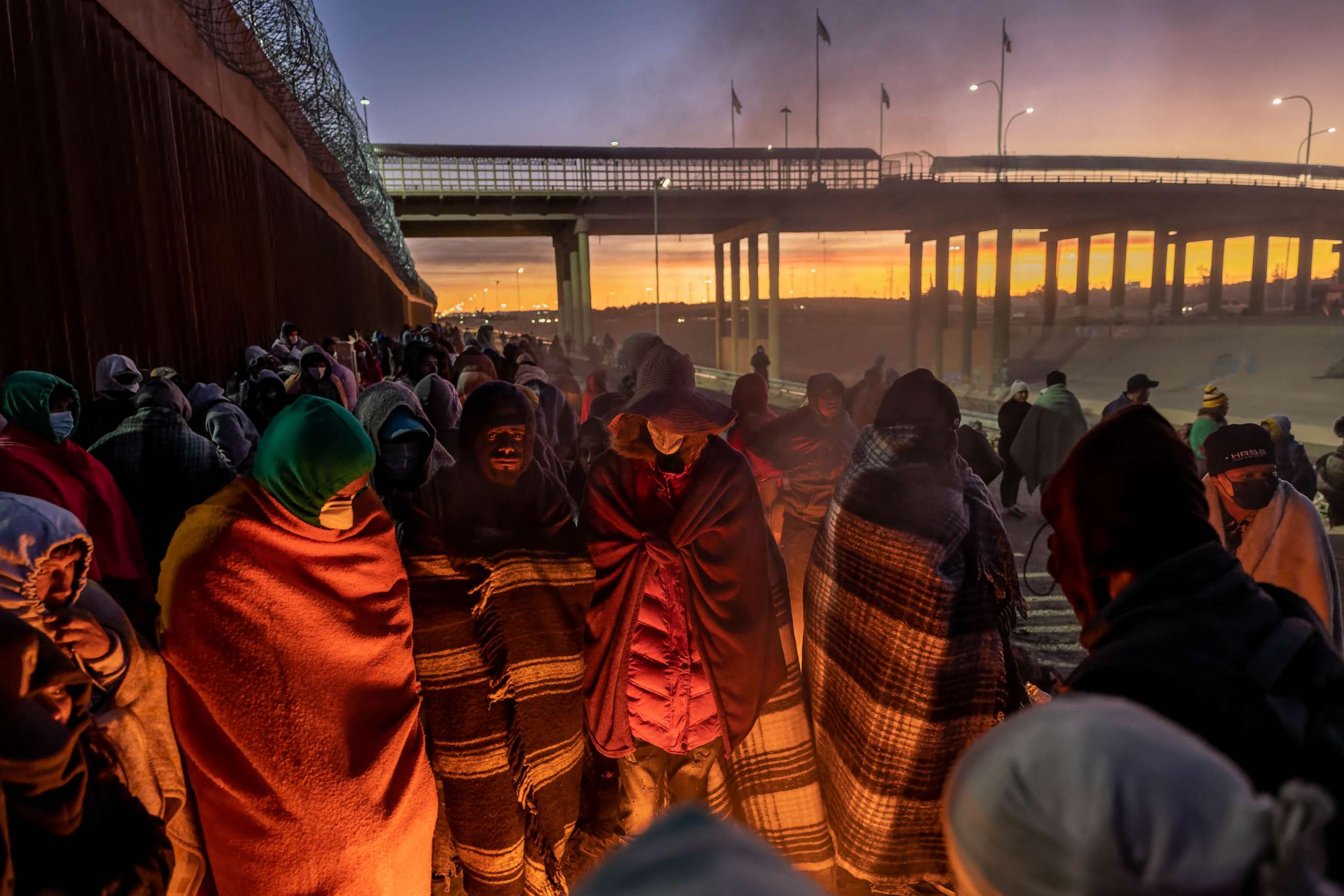Biden administration proposes new limit on how migrants can seek asylum in US
The Biden administration on Tuesday proposed a new immigration rule that, if implemented, would limit the ability for some people to seek asylum in the United States.
Under the proposal, the administration would consider some migrants ineligible for asylum if they fail to first seek protection in another country that they transit through en route to the southern border -- such as Mexico -- and if they don't apply through other legal pathways, with some exceptions.
The rule is meant to mitigate a surge of migration that the administration anticipates will follow after the COVID-19 public health emergency ends on May 11.
A Trump-era public health policy known as Title 42, which has been used to rapidly expel more than 2 million migrants since March 2020 because of the risk of infections, is also expected to end on that day.
Conservatives like Texas Gov. Greg Abbott have long argued that Biden's approach to the border and immigration is more "reckless" and harmful -- rather than more lawful and humane -- than former President Donald Trump, and some conservative lawmakers have sought to impeach the Homeland Security secretary, Alejandro Mayorkas, saying he is to blame.
Meanwhile critics of the administration's planned restriction have compared it to a "transit ban" that was implemented by Trump to prevent granting asylum to migrants who had traveled through other countries to reach the U.S.
Biden officials insisted to reporters on Tuesday that congressional inaction led them to propose the new measures.
"It is intended to fill the void that Congress has left by taking no action and to help us ensure secure and humane processing of migrants when Title 42 does end," one administration official said. "To be clear, this was not our first preference or even our second."


Shortly after the administration first announced it was considering proposing such a rule, in January, nearly 300 civil, immigrant and humanitarian rights organizations wrote a joint letter to Biden urging him to abandon his plans.
Many of those same organizations echoed that sentiment on Tuesday, criticizing the proposed rule as an embrace of Trump-like policies. The administration has pushed back, saying that unlike under President Trump, they are providing migrants multiple pathways to seek protection and not issuing a "categorical ban" on asylum.
Administration officials say the finalized rule may be different than what they have proposed after it is subjected to a 30-day public comment period.
Once finalized, the rule would stay in place for two years.
"We will sue if this administration goes through with its proposed asylum ban, just as we successfully sued over the Trump asylum bans," American Civil Liberties Union attorney Lee Gelernt said in a statement provided to ABC News. Gelernt previously challenged the Trump administration's sweeping asylum restriction, which was eventually struck down in federal court.
Democratic lawmakers also denounced the proposal. Sens. Bob Menendez and Cory Booker of New Jersey, Ben Ray Luján of New Mexico and Alex Padilla of California issued a joint statement on Tuesday urging the president and Secretary Mayorkas to "reverse course."
"We are deeply disappointed that the Administration has chosen to move forward with publishing this proposed rule, which only perpetuates the harmful myth that asylum seekers are a threat to this nation," the senators said, in part.

Eleanor Acer, the director of Refugee Protection at Human Rights First, said that the Biden administration's approach to the issue endangers migrants in similar ways as under Trump.
"This rule, like the Trump ban, would turn refugees seeking asylum in the United States away to danger due to their transit through other countries," she said. "It essentially is erecting additional barriers and requirements that will make it even more difficult for people to seek asylum at ports of entry, when the Biden administration should instead be doing all they can to maximize and facilitate the ability of people to seek asylum at ports of entry."
When asked by ABC News to address critics who say the proposed rule deprives migrants of agency and the freedom to seek asylum in the country they feel the most safe in -- a form of protection that is guaranteed by international law -- one Biden administration official pointed to other pathways established for migrants, such as a recently announced humanitarian parole program that aims to allow up to 30,000 asylum from Nicaragua, Haiti, Venezuela and Cuba into the U.S. each month.
Acer said that despite the administration's attempts to disincentivize migrants from seeking irregular pathways to asylum -- and, in the process risk being victimized by human smugglers who take advantage of them -- the proposed rule may have the opposite effect.
"In reality, refugees [right now] often don't apply for protection in countries they transit through because they know they won't be safe in those countries," she said.




